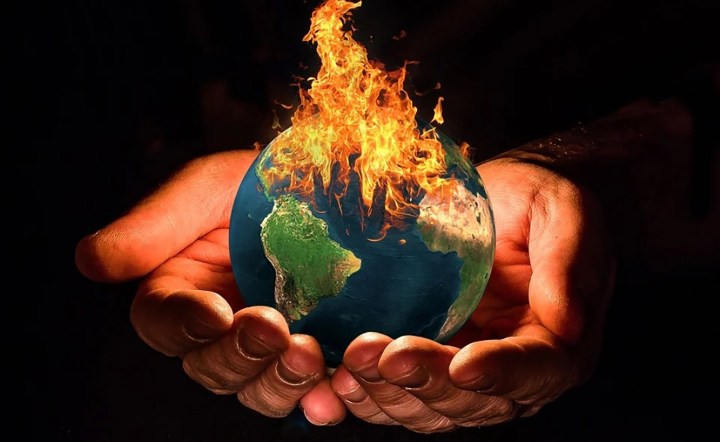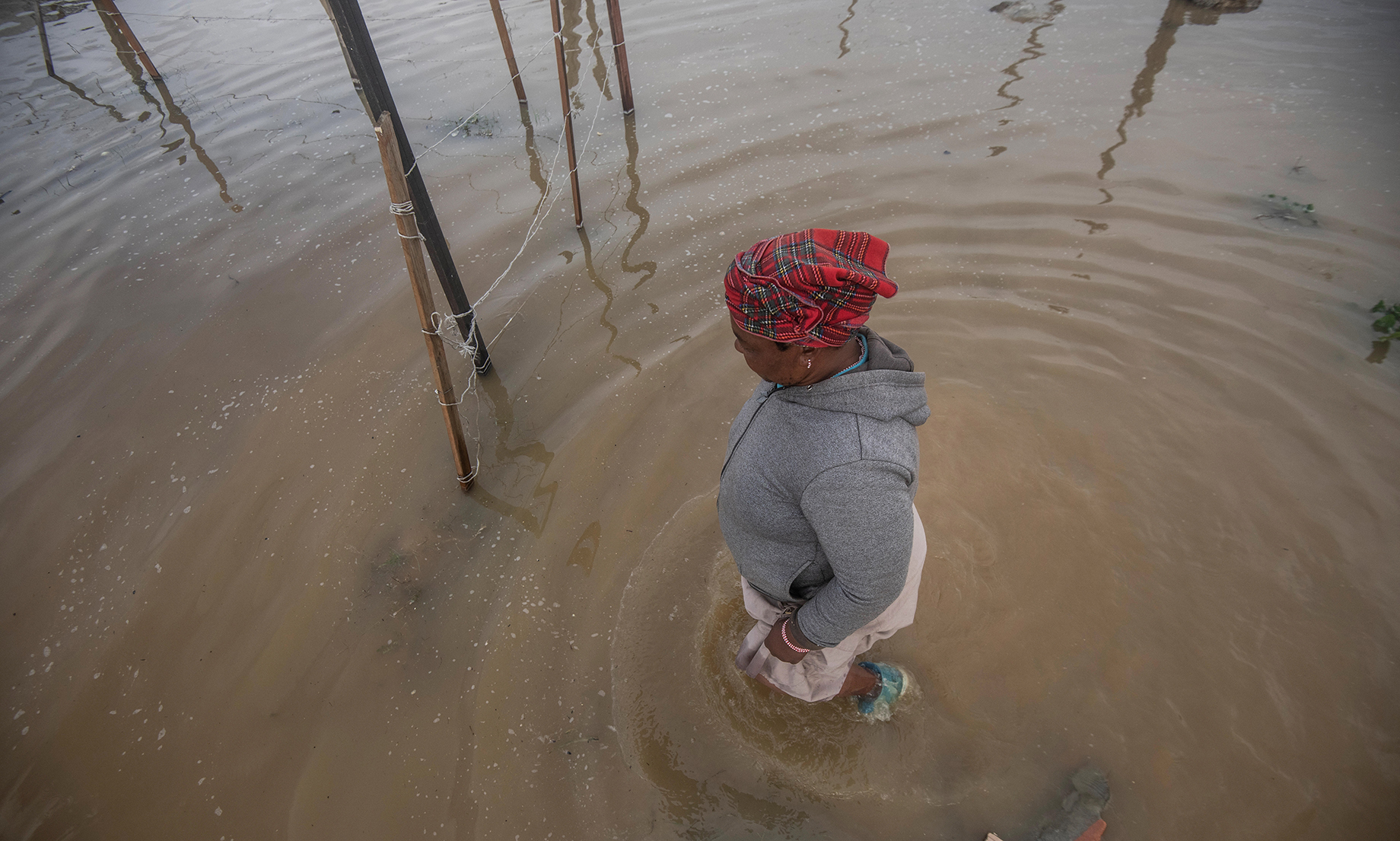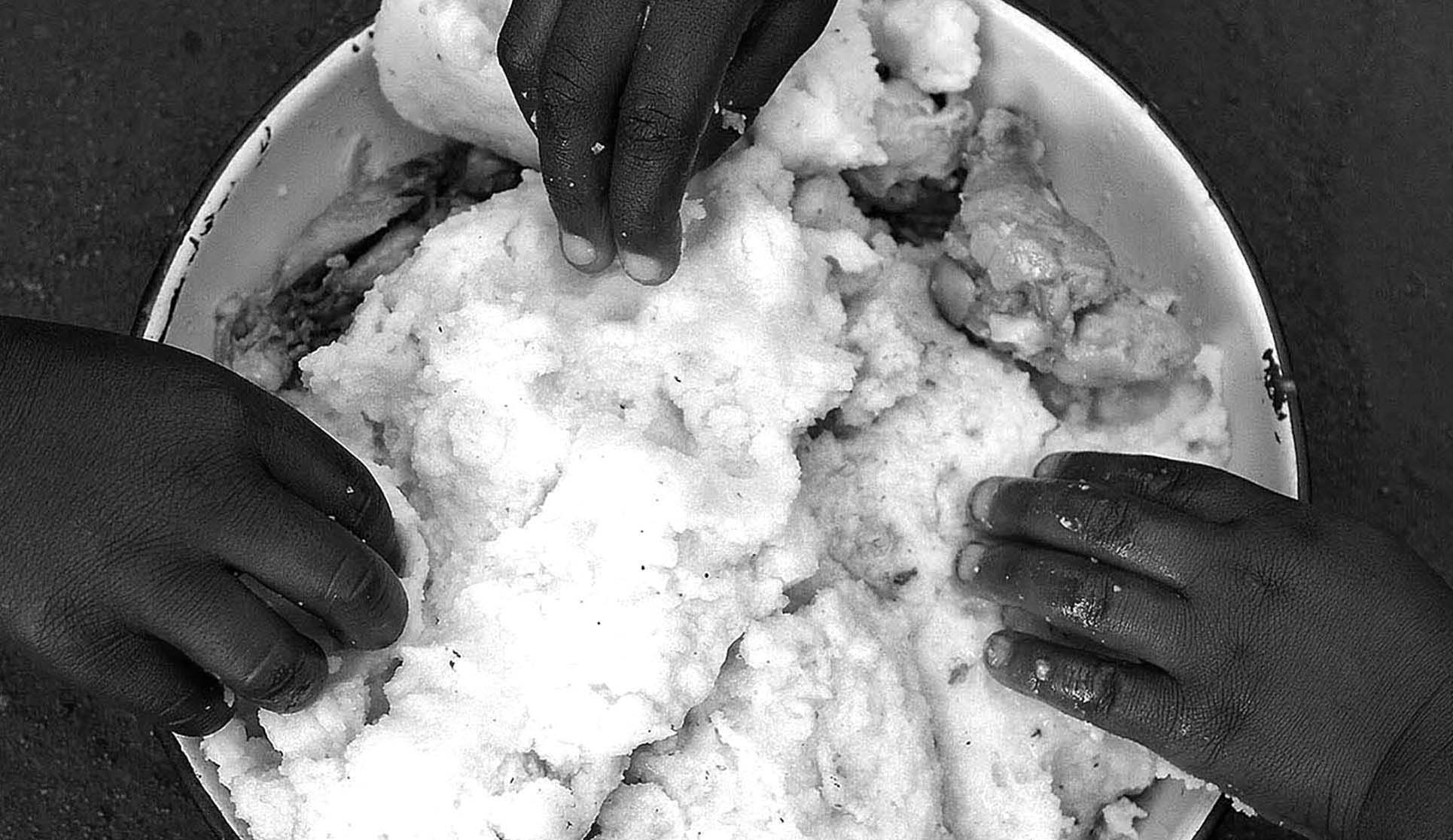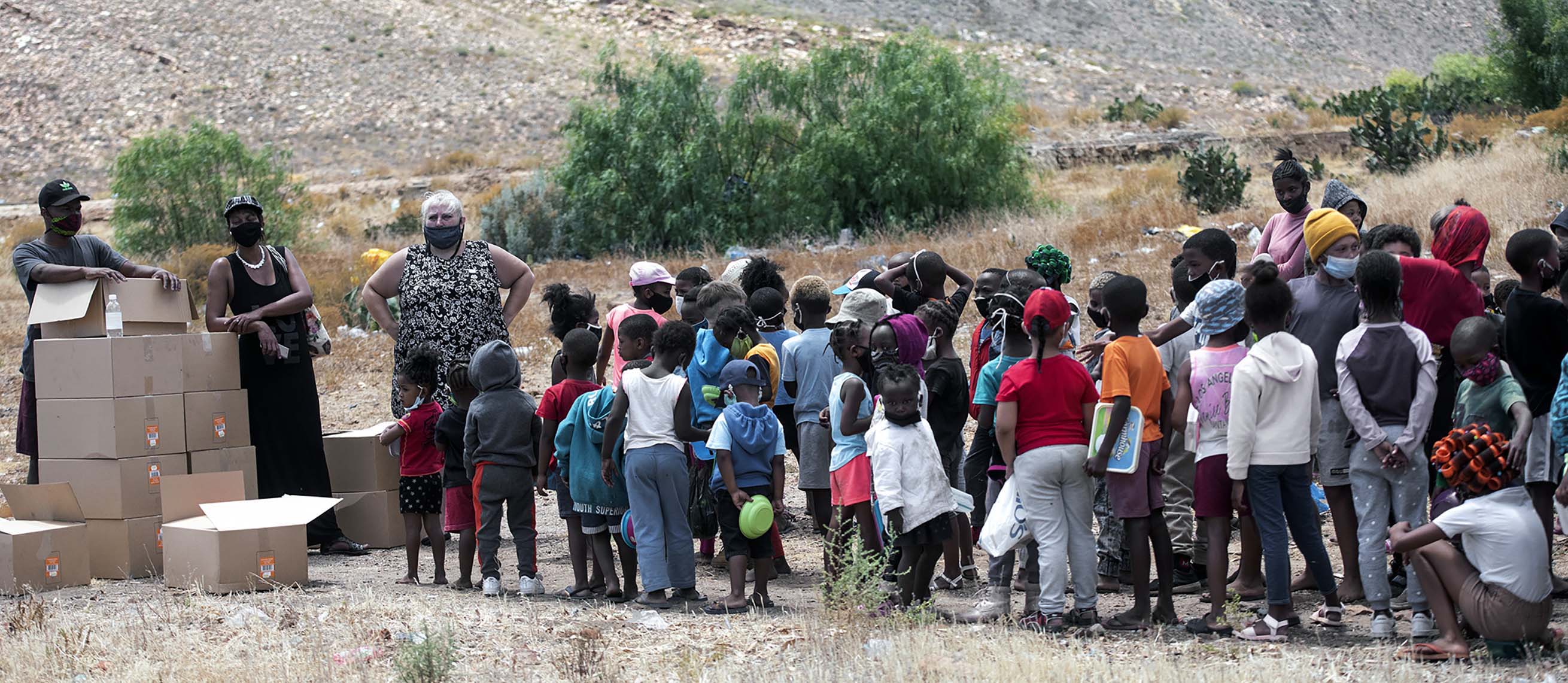OP-ED
Learning, unlearning and relearning: Popular education points the way towards climate justice

By addressing the climate crisis — which affects everything — we can also advance solutions to all socioecological crises and end the war on nature.
Like lemmings, we are stampeding towards a cliff. Is it possible to interrupt our headlong rush to self-destruction?
The survival of the human species is in jeopardy. This has been known since the early 1970s. Since then, governments have either refused to face the ecological facts or played down their seriousness.
This is despite the fact that the central message that current growth trends cannot be sustained has been reconfirmed every year by thousands of headlines, hundreds of conferences and many new scientific studies, including the latest Intergovernmental Panel on Climate Change (IPCC) reports.
Like the rest of the world, we in South Africa have endured (and are still enduring) the Covid-19 pandemic. In March, the floods in KwaZulu-Natal caused widespread chaos and misery.
The rising cost of food, fertiliser and petrol is a daily reminder of how a war fought elsewhere affects us all — and yet we seem impervious to the reality that the climate crisis is not so much a “natural disaster” (as is often claimed) as it is the result of human actions.
To change the world, we need to imagine alternatives.
Many activists, scholars and community members have begun to imagine alternatives to fossil fuels through, for example, socially owned and community-based renewable energy.
They have imagined and, in some instances, created alternative people-centred approaches to housing, transport, water, food sovereignty, waste and sanitation and economic systems.
As the Climate Justice Charter states: By addressing the climate crisis, which affects everything, we can also advance solutions to all socioecological crises and more generally end the war on nature.
Systemic alternatives are necessary to address the causes of the climate catastrophe and to lessen the risks and pressures towards systems collapse. Yet, these seemingly sensible alternatives are so difficult to implement. Why is that? And what can we do about it?
Rajesh and Atul Gupta arrested in Dubai – but don’t expect them in SA too soon
Unpicking fundamental beliefs
The dominant worldview is a belief in the validity and importance of modern science, along with its emphasis on economic growth and technological development, and the distinct separation between humans and other life forms.
Despite claims to the contrary, the global capitalist economy thrives on the notion of limitless economic growth and promotes the maximisation of profits for a few. Also, it enables access to “natural resources” that humans are destined to dominate and conquer for their own ends.

People fetch their belongings from flooded homes at a Informal Settlement in Bloekombos, Kraaifontein in Cape Town on 1 July 2021. (Photo: Gallo Images / Brenton Geach)
There is a symbiotic relationship between the ecological crisis and the ideology of endless growth, more extraction and consumption by the world’s elite.
The elites who are invested in the status quo are not likely to lead the deep transformation that is needed, including dismantling patriarchy.
The question is: how do activists, educators, scholars and communities help to unpick the fundamental beliefs that are woven tightly into the fabric of political, social, economic and cultural life?
Some neighbourhoods and communities — often living under conditions of poverty — organise, roll up their sleeves and begin to clear and dig the ground. They sew and plant and reap the fruits of their labour: vegetables for the pot or to distribute, sell or swap for more seeds or implements.
They act, collectively, with common purpose and hope — and they build, instead of waiting.
These actions disrupt the beliefs, attitudes and behaviours that go alongside a sense of victimhood, passivity and despair, and demonstrate that alternative ways of living are possible.
Importantly, if reflective processes are built into these actions, participants can name what is happening: learning, unlearning and relearning.
The Community Action Networks (CANs) formed in response to the Covid crisis are one example of critical reflection and deliberate education with action.
Popular education for transformative practices
Popular education has long traditions of challenging the hierarchical dualisms of culture/nature, mind/body, science/folk knowledge, reason/feelings, materialism/spirituality. It does this through use of creative, participatory methodologies which include play, aesthetics, drama and storytelling.
Imagine this:
A group of community workers from rural areas performs a small skit that demonstrates how crisis events — in this case, a flood — affect women differently to men.
Five of them take the “stage” in two groups: one representing a family, one the employers. The manager grumbles about how the floods have disrupted work processes and how the loss of productivity will mean losses of income and profit. The supervisor reminds him that people have lost their lives and livelihoods.
Switch to the family group: the child cries for food. The mother sweeps mud out of the house and mops the floors. She seems frantic and her child’s cries upset her. The father is busy on his cell phone. He calls the boss to tell him the roads have been washed away, there are no taxis and he sees no possibility of getting to work.

Child hunger blights millions of children, against which activists and health workers have been warning — seemingly to no avail — for years. (Photo: Gallo Images / Sowetan / Sandile Ndlovu)
“No work, no pay!” is the brutal response. Dejectedly, he turns to the mother who urges him to call again to ask for an advance on his wages. How else will they get food?
The tension builds as he calls again and is rejected again, while the child cries more loudly. The mother’s anger turns on the father: how is she supposed to feed the child, and with all this mess? He in turn reacts with anger and frustration. They attack each other physically.
The performers stop and turn to their “audience”: what is happening, and why? What should be done about it?
The power of a story
The performance demonstrates a range of realities. It shows how the people most affected by crises know the dynamics of emergencies well and, given the opportunity, can function as “teachers”.
It illustrates the power of storytelling and edutainment, and shows how social, economic, environmental, gender and race factors are interconnected, both in a climate crisis-induced emergency and in relation to climate justice.
It gives a strong message that we need to understand what is happening and why, so that we can act for change. We must talk to and learn from each other.
This example contains the essence of popular education: community based, working class people participating actively in co-constructing the knowledge they need in order to develop a deeper understanding of the dire conditions that threaten all life — and to decide on action to improve the situation.
Education is most successful when it focuses on what matters to people and begins with what people know from their daily lives. Rather than talking about “carbon emissions”, a participatory process can light a spark about climate justice.
What we eat and drink
Focusing on what we eat and drink, food systems and food insecurity, nutritional health and hunger, are good starting points for popular education.
The biggest impact of the climate crisis will be on agricultural and food systems, says the IPCC’s 2022 report on food security and impacts.
Current processes of food production, availability and access to nourishing foods — especially in vulnerable regions — undermine food security and nutrition.
By eating more plant-based foods and less meat, the affluent world can drastically reduce the carbon emissions that come from the food systems.
However, as the IPCC report shows, the ability to produce food relies on water, soil fertility and pollination, and as global warming weakens soil health, the nutrients in our food are diminished.
Those who attempt to grow food will feel the effects most.

Gift of the Givers distributes food parcels on 27 January 2021 in Touws River, South Africa. (Photo: Gallo Images / Brenton Geach)
Becoming aware of how the food on our plates has undergone a long exploitative process may help us to switch to plant-based foods and shift our relationship with nature.
By “joining the dots” and asking questions, we can become aware of the connections between the exploited, casual workers on a fruit farm and the shiny “perfect” fruit on the supermarket shelves.
Similarly, while peasants raise and consume fowl sustainably, the consumption of meat by urban dwellers is often disconnected from the animals who were slaughtered.
The task of an educator might be to help make the food system that produces hamburgers and steaks visible: the story of using animals as food may include an account of their brutal treatment in factory farms and slaughterhouses, the environmental impact of animal agriculture, and the impact of meat production on world hunger and human health.
The process of unlearning is difficult because challenging assumptions that are taken for granted is an emotional stretch.
A safe environment is important, as the aim is to surface moral and ethical sensibilities which link to the integrity, honesty, respect, courage and responsibility necessary to explore alternative ways of living.
Learning, unlearning, relearning
The visions underlying the Climate Justice Charter focus on essential values rooted in the common good.
To build broad-based collective understanding of these values, education which encourages learning, unlearning and relearning is needed across all age groups.
Any education built on the charter should begin by connecting the information presented with real-life experiences.
Before this can happen, it is important to establish democratic relationships where all participants are invited to be “learners” and “educators”.
The real experts in such processes are those with relevant knowledge from life experience. For example, in a drought it is poor and working-class communities who know how to live with limited water who will be able to teach others how to use less water.
Education can happen anywhere: in picket lines and taxi queues, in community centres or clinics or around the kitchen table.
Recognising that we all need to learn, unlearn and relearn can spark the excitement and energy that contributes to reimagining, reconstructing and rehearsing experiences of another, more hopeful world. DM/MC
Astrid von Kotze and Shirley Walters are educational activists and part of the Newlands (Cape Town) Community Action Network (CAN).




















 Become an Insider
Become an Insider
Comments - Please login in order to comment.